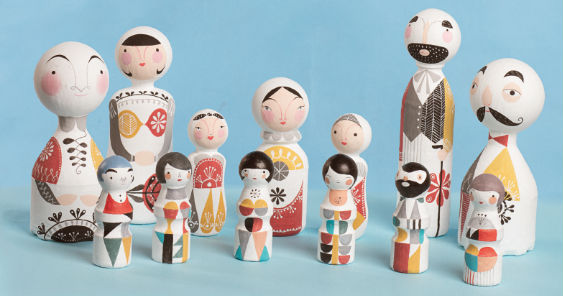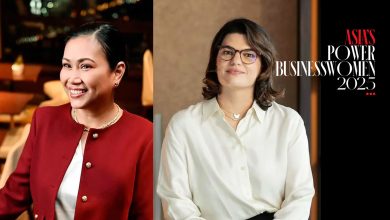by Rocelle Aragon
You may have seen them on the artist/designer’s Instagram account, or the retailer’s, or at their unveiling at a green business conference. Their whimsical faces are a little European, a little Chagall–but inside they’re all Pinoy.
Available in early 2016, the handpainted upcycled bottles are a brainchild of Papemelroti and Human Nature, two staples of the country’s social enterprise scene. Strikingly, the bottles are not only artful and worthy, they also solve a business problem.
Like any personal care line sold in mass-priced small sizes, Human Nature generates a lot of bottles; less commonly, they take action to minimize the bottles’ environmental impact. Previously, the brand collected its own used bottles for recycling by residents of GK* villages. But with minimal monitoring, the project lost momentum; many of the returned bottles landed in junk shops.
“Our problem was two-fold. [We] can’t refill because our liquid products do not have the synthetic stabilizers and antibacterials of similar products. Second, we are slowly switching to corn-based plastics, which means the usual junk shops will not accept us,” said Human Nature’s Tish Martinez-Castillo.
“We were really searching for a way to close this sustainability gap. We’re a pro-environment company, from manufacturing to ingredients. We could not let those bottles go to the dump. We are grateful to have found a partner in Papemelroti. It was actually Robert who thought of painting the bottles and teaching communities how to mass-produce them.”
“Robert” is Robert Alejandro, chief designer of retail chain Papemelroti, art educator and an inspirational figure for many of today’s young visual artists. Robert had upcycled Yakult bottles before, so these were not a big leap. As with most Papemelroti products, Robert creates each prototype, which then goes to a supplier for replication: in this case, the adding of a papier-mache head and the painstaking handpainting that makes them so covetable.
The supplier is an artisan who has supported his family by hand painting for Papemelroti for four years now, and is now teaching his son to do the same. This highlights a point of pride for both companies: sustainable livelihood through a fair-value-for-labor wage.
Cleverly, the prototypes also reflect Human Nature’s top-selling products: baby oil, shampoo and baby wash. Once available, they will be sold at the two brands’ retail outlets. The currently planned P100 price ensures that rather than being limited to the elite, some of the bottles will return to their roots, bringing beauty to the homes of the people who first produced and used them: a different kind of recycling, but just as laudable.
*Gawad Kalinga, the livelihood program that founded and runs Human Nature
Trivia: Before taking art education to TV, Alejandro was an art director at McCann, where he helped win a Clio in the early 1990s for Blue Diamond Nuts–an even rarer achievement in those pre-internet days.
This article was first published in the November-December 2015 issue of adobo magazine.








